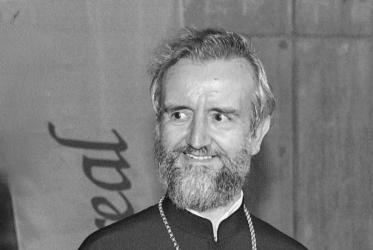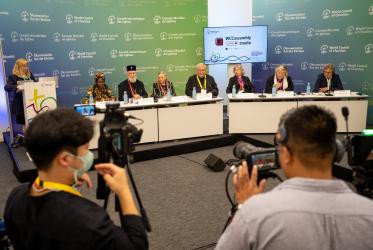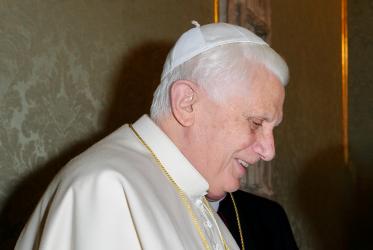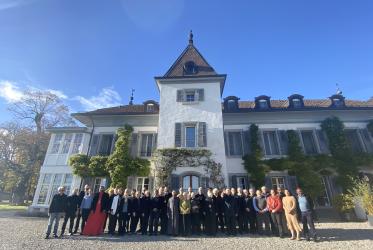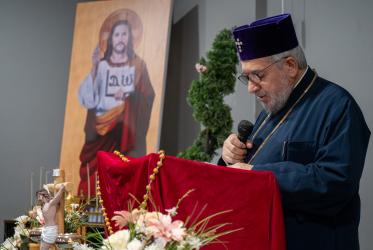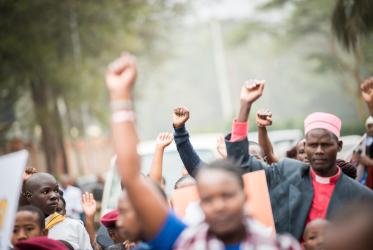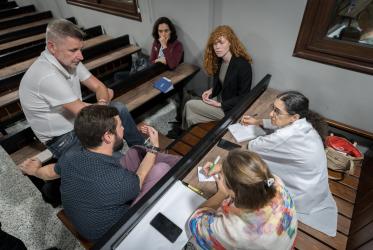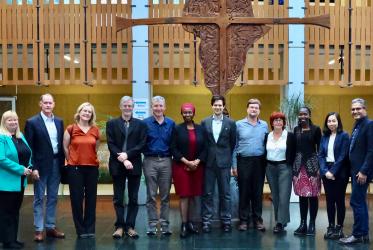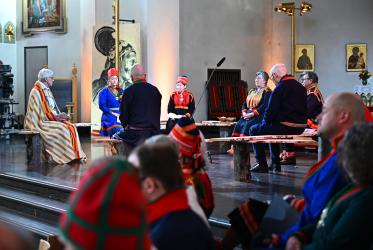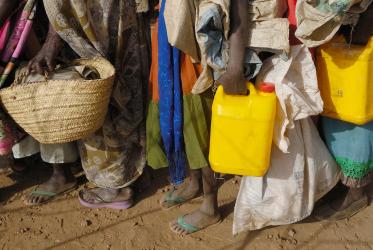Displaying 81 - 100 of 589
WCC mourns loss of Elder Metropolitan John Zizioulas of Pergamon
03 February 2023
HIV and AIDS Civil Society Networks and the Faith Sector
Lessons Learnt from Strategic Engagement in India, Dominican Republic, Indonesia, and Jamaica
31 January 2023
Pope Emeritus Benedict XVI leaves a legacy of ecumenical dialogue
31 December 2022
Towards a Global Vision of the Church Volume I
Explorations on Global Christianity and Ecclesiology, Faith and Order Paper 234
14 November 2022
Church of Sweden apologizes to Sámi people, this time in Sápmi
27 October 2022


